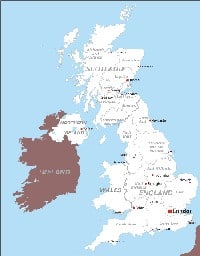By Michael Banks
Tomorrow the UK will have a general election and while physicsworld.com does not endorse a particular party, we have put together some of the science-based pledges from the three main parties – Conservative, Labour and Liberal Democrat.

In March, the campaign for science and engineering in the UK (CASE wrote to the main parties to ask them to set out their policies for science and engineering in advance of the election. Here are some of the responses as well as what the parties’ manifestos and their science representatives have to say.
So if you are still undecided about who to vote for then maybe the parties’ science policies will help you to decide where to put that cross on the ballot paper tomorrow.
Conservatives led by David Cameron
Response to CASE: “To provide real incentives to get more good science teachers into out school, we will pay off the student loan obligations of top STEM graduates for every year they spend in the classroom.
“We will postpone the Research Excellence Framework by up to two years, while we review the evidence behind the new system.
“I want the next Conservative government to act early, sensitively and intelligently so that scientific research can move forwards within the boundaries set by Parliament.”
What Adam Afriyie, shadow minister for innovation, universities and skills, says: “Our science base is a valuable national asset. Economically, politically and socially, it underpins the prosperity and wellbeing of our nation.”
What the Conservative manifesto says: “Initiating a multi-year science and research budget to provide a stable investment climate for research councils.”
Labour led by Gordon Brown
Response to CASE: “We will continue to support curiosity driven research, which has underpinned the breadth and excellence of UK science over the last ten years. In setting research priorities, we respect the Haldane principle.
“The success of UK science has also been underpinned by a ring-fenced science budget and a ten-year framework.
“Scientific advice should be at the heart of government and society. We have chief scientific advisers in almost all government departments. And for the first time the science minister sits at the cabinet table.”
What Paul Drayson, minister for science and innovation, says: “Science isn’t peripheral to the decision facing the country. It is central: to growth, to prosperity and well-being.”
What the Labour manifesto says: “We are committed to a ring-fenced science budget in the next spending review.”
Liberal Democrats led by Nick Clegg
Response to CASE: “Liberal Democrats would abolish tuition fees over a six year period. We see them as unfair and a regressive tax on education.
“We are committed to not cutting science spending in the first year of a new parliament. We are also committed to not allowing the science budget to be raided once it is fixed for the given Comprehensive Spending Review period.
“Liberal Democrats believe that public policy should be evidence-based as far as possible. Advisers must feel able go give their advice without fear of being bullied if it is not what a minister or tabloid newspaper editor wants to hear.”
What Evan Harris, Liberal Democrats spokesperson for science, says: “We recognize that science, technology, and engineering have to be key drivers of our economy as we move out of recession.”
What the Liberal Democrat manifesto says: “In the current economic climate it is not possible to commit to growth in spending, but Liberal Democrats recognize the importance of science investment to the recovery and to the reshaping of the economy.”



